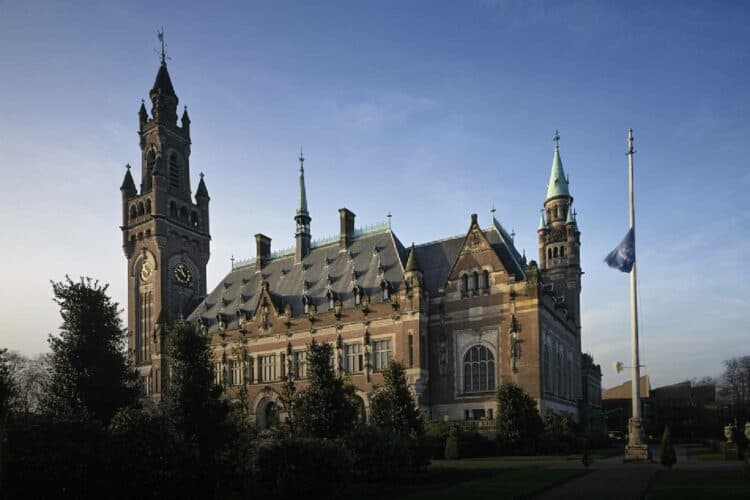Israel is set to present its defense against South Africa’s accusation of genocide in the Gaza Strip at the International Court of Justice (ICJ).
This high-profile legal confrontation follows South Africa’s claim that Israel’s military actions in Gaza meet the criteria of the 1948 Genocide Convention.
WATCH: Israel presents its case at the ICJ
PLEASE NOTE: The third-party content below is shared on our platform for journalistic purposes. Swisher Post, its parent company, partners and affiliates shall not be held liable for any consequence that arises from the journalistic duties performed in sharing this content.
Israel’s argument is anchored in the notion that the 7 October Hamas attacks on Israel, which triggered the war, are the root cause of the conflict.
A spokesperson for Israeli Prime Minister Benjamin Netanyahu, Eylon Levy, stated,
“The state of Israel will appear before the International Court of Justice at The Hague to dispel South Africa’s absurd blood libel. We assure South Africa’s leaders, history will judge you, and it will judge you without mercy.”
The Israeli response is also expected to highlight the complexity of the conflict, particularly focusing on Hamas’s strategy of operating from civilian areas, including schools and hospitals.
Levy emphasised that Hamas bears responsibility for the war, waged from various civilian and UN facilities.
South Africa’s legal team, in contrast, argued that the scale of death, destruction, and the humanitarian crisis in Gaza justifies the genocide claim.
The backdrop to these legal proceedings is the ongoing fierce fighting in southern Gaza, with Israeli forces conducting operations in Khan Younis.
The Palestinian Ministry of Health reported over 200 deaths in 24 hours, bringing the total death toll from the Israeli assault on Gaza to more than 24,000.
The ICJ, often referred to as the World Court, is the principal judicial organ of the United Nations, tasked with settling legal disputes between states. The Court’s proceedings are known for their thoroughness, with both parties given ample opportunity to present their case in full.
Legal analysts expect the case to hinge on intricate legal arguments and interpretations of international law. The proceedings might involve presentations of evidence, expert testimonies, and detailed legal expositions from both sides.






